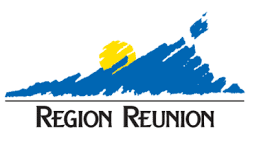New RGPD rules for insurance cold calling: ensure your compliance and protect your customers' rights
The recent reform of the insurance brokerage and banking and payment services brokerage sectors, introduced by the French Banking Act (Loi n°2021-402 of april 8, 2021 and Decree no. 2022-34 of January 17, 2022, introduced new rules for telephone canvassing in the insurance sector. From April 1, 2022, these new provisions will impact insurers and insurance intermediaries, such as brokers, general insurance agents, insurance agents or insurance intermediary representatives, who canvass potential customers and sell contracts by telephone.
Explicit prior agreement:
Article L. 112-2-2 of the French Insurance Code has been introduced to protect the rights of consumers when it comes to cold calling. Under this new regulation, from the outset of the conversation, the distributor must obtain the explicit prior consent of the subscriber or potential subscriber to continue the call. If this agreement is not obtained, the distributor is obliged to end the call immediately and not to contact the person again.
Recording of telephone conversations:
The decree stipulates that distributors must inform callers that telephone conversations will be recorded. In addition, if an insurance contract is concluded, the recording of the telephone exchange must be kept for a period of 2 years. Distributors must also inform their employees of the existence of this recording system, its purpose and the legal period for which the recordings must be kept. It is important to stress that employees' private calls are not affected by this recording.
Other obligations for distributors:
In addition to explicit prior consent and the recording of telephone conversations, distributors must comply with several other obligations to guarantee the protection of consumer rights. They must :
- Terminate the call immediately if the subscriber or potential subscriber expresses disinterest or a wish not to proceed with the sales proposal.
- Make sure that if the person you are calling is already covered by a policy identical to the one proposed, this policy can be cancelled if the new policy is taken out.
- Send all documents and information relating to the contract before it is concluded, and check that they have been received by the subscriber or potential subscriber.
- Respect a minimum delay of 24 hours between receipt of the documents by the subscriber or potential subscriber and any new telephone contact, after the subscriber's express agreement.
- Obtain an electronic or handwritten signature from the subscriber or potential subscriber, to guarantee his or her commitment. A simple oral agreement is not sufficient, and the distributor is not authorized to sign a contract on behalf of the subscriber or potential subscriber.
Once the contract has been signed, the distributor is required to inform the subscriber or member, in writing or on a durable medium, of the details of their commitment, in particular the documents relating to the signing of the contract, the validity dates (conclusion and effective date) and the cancellation procedures.






